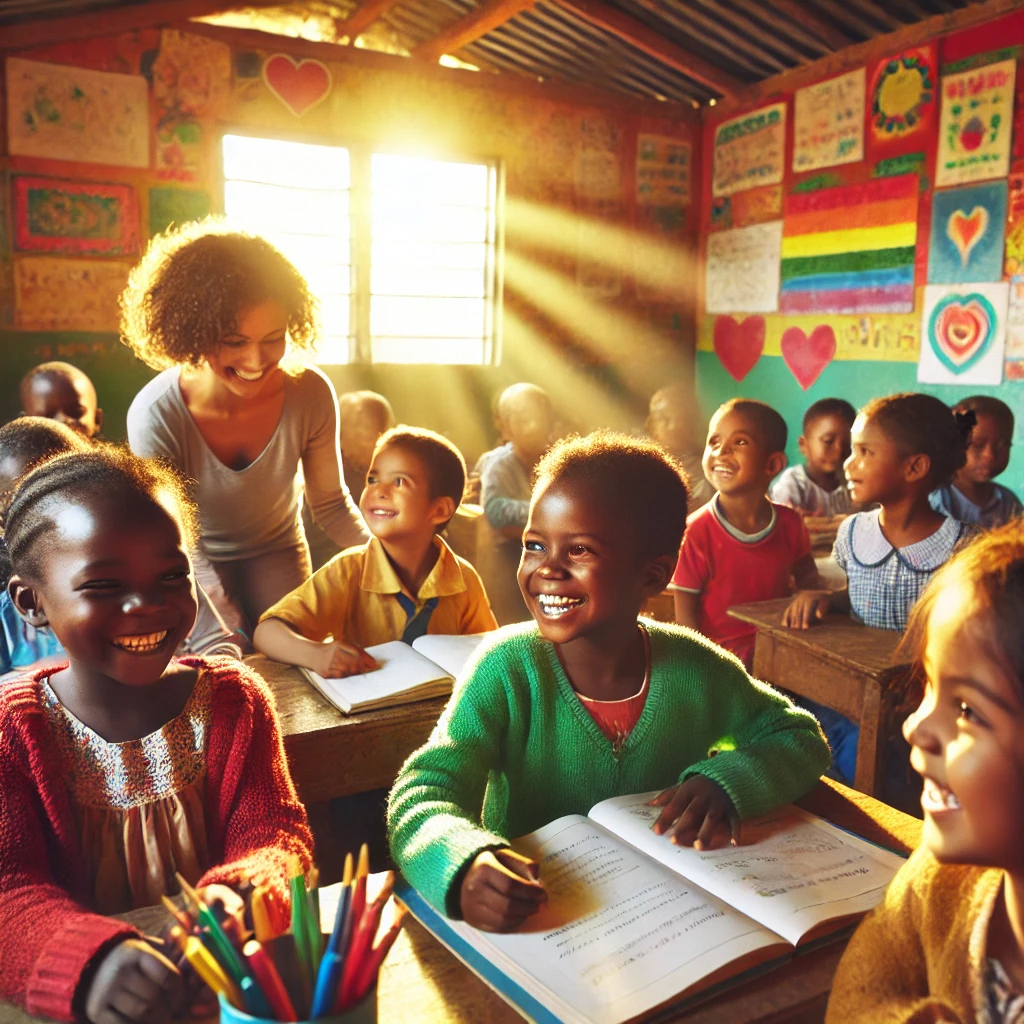Struggle for chances

In the Manggarai Community in the heart of Jakarta, a lesson is taking place. About thirty children, aged between four and seven, are gathered in a circle on the floor, learning together. Various activities are held here, including music, group work, and quizzes, all aimed at preparing them for school. However, such support is not a given; without the Indonesian School Children Organization (ISCO) Community Center, these children would likely not have the opportunity to attend school. Many children living in Indonesia's slums face challenges in accessing education.
As Lady, a volunteer and mentor from ISCO, says, children are learning the basics of natural sciences, mathematics, Indonesian and English languages, as well as arts. In a country where education is mandatory, this requirement often remains just on paper. Children who grow up in slums typically do not have birth certificates and are not registered, which creates additional barriers to their access to schools.
The ISCO Community Center is a crooked but cozy wooden house that, compared to the children's living conditions in the slums, seems almost luxurious. The lady notes:“In their homes, there is usually one room where five to seven people live. The living conditions are extremely poor.”In Manggarai, almost no one has enough means to live; locals often work in garbage collection.
In Java, the main island of Indonesia, it is estimated that up to five million children live in slums, and the fate of these little ones concerns Austrian businessman Josef Fuchs. He has been living in Indonesia for over 30 years, and more than 13 years ago, together with a French partner, he founded ISCO to help some of the abandoned children in the country get a chance at a decent future. According to him, thanks to the foundation, 2,500 children have been able to start their education.
The focus of this organization is the Community Center — a place where all the children gather. It's a kind of daycare that offers activities for younger kids in the morning and organizes homework time for older students in the afternoon. The children also receive meals at this center:“They only need to bring food from home once a week. This is done so that parents do not become completely dependent on us.”Fuchs explains.
It is important to note that ISCO does not select children based on intelligence criteria, so that as many children as possible can prepare for school. The organization does not run its own schools but collaborates with state educational institutions. Fuchs assures that such a program really works:"22% of our children are among the top ten students in their classes."ISCO covers all educational expenses for its students, including transportation, uniforms, and textbooks. It also provides tutors to assist with homework.
In addition, the organization does not leave children without support after they finish their education.“We can guarantee that these children will also receive vocational training after school.”Fuks tells us. Just recently, a young woman from the slums managed to get into university — however, for most students, this is quite a challenging path. Until then, ISCO is there for them every day.
After classes, the children are required to register at the Community Center, where the staff monitors their health and ensures that they are studying rather than working. Moreover, it seems that most of the children from Manggerai are aware of and appreciate the opportunities provided to them. They listen with great interest to their mentor, Lady, who is also pleased with the progress of her students.“Most children are happy to come here,”she notes.“They are eagerly looking forward to the opportunity to play and learn for a brighter future.”
Comment
Popular Posts
Popular Offers

Subscribe to the newsletter from Hatamatata.com!
Subscribe to the newsletter from Hatamatata.com!
I agree to the processing of personal data and confidentiality rules of Hatamatata





